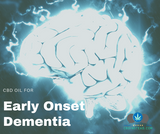Eating disorders have the highest mortality rate of any mental illness, one of the most common being Anorexia Nervosa. Anorexia is a severe illness that is often used as an insult or the punch line of a joke. It can be lonely, stressful, and even fatal, but is entirely treatable. Behavioral therapy is a great tool to utilize while trying to find yourself again, and many are turning to CBD oil to help them along the way.
What Is Anorexia?
Anorexia is more than just not eating to be skinny. It is having the inability to be satisfied with your body which turns into the compulsive desire to lose weight. It’s your mind continually telling you what you should look like, how you should feel, what you should or should not eat. People turn to laxatives and extreme fitness routines and run their bodies into the ground. Though there are many different ways to experience this mental illness, anorexia nervosa is split into two categories.
Binging and Purging
This type of anorexia nervosa is when the person may eat a lot in one sitting, but afterward, they find extreme ways to compensate. Usually, this is vomiting, but it can also be laxatives or excessive physical activity. This person may go a week without eating and then gorge on a meal one night, their guilt of eating driving them to get that “weight” off of their body in an unhealthy way.
We know what you’re thinking. That’s bulimia nervosa. There is actually a difference between binging and purging with anorexia and being bulimic. Those with bulimia nervosa are usually an average weight and don’t go long periods of time fasting like people who suffer from anorexia nervosa. Bulimia patients may fast for a few days, but not nearly as extensive and severe as those with anorexia.

Restrictive
This type of anorexia nervosa is when the person does eat just in unhealthy quantities. They eat well under the suggested caloric intake and not very often. Eating small portions is okay if you do it regularly and often, it can help boost your metabolism. However, these individuals don’t eat enough throughout the day, eventually starving themselves.
How Do People Get Anorexia Nervosa?
Our Culture
We live in a time where it is safer to be yourself and loud about it. Positive body image is all the rage with celebrities calling out photo shoppers and over the top fad diets. Unfortunately, we are still in the beginning stages of body positivity. There are still size zero models being front and center, showing the world what you need to look like to get attention. There are still bullies in the classroom and in the office. There are still people being shamed into wearing certain types of clothing. Unfortunately this drive to be skinny can be purely superficial, making the methods people take incredibly unsafe.
Our Genetics
Scientists aren’t exactly sure what genes are the culprits of eating disorders, but they think that they have a part to play. Whether or not it is genetic or the family is suffering under the same social scrutiny has yet to be determined. They can’t help but point out that some people are a lot more susceptible to this illness than others, and they believe it’s because of their inherited genetics.
Other Mental Health Disorders
Someone with obsessive-compulsive disorder may find themselves obsessively worrying about their weight. Another person with paranoia might obsess over their weight because their partner might leave. There are plenty of reasons to start extreme habits when it comes to mental illness, and they usually eventually lead to the same place- losing control. Considering anorexia nervosa is a psychological condition itself, it makes sense it would come along for the ride with other mental illnesses. They seem to like to run in packs.
Suddenly Gaining Weight
Some people gain weight when they hit puberty; some are lucky enough to dodge the bullet of having to watch their meals until their thirty. Eventually, most people go through a time in their life where their body reacts to food differently, and they start putting on weight. This sudden change can freak people out and make them go to extreme measures to hold onto the body they never had to work for, which can lead to an out of control lifestyle that makes them lose weight at an extremely unhealthy weight. The problem is they are never, ever, skinny enough. Sometimes the only way to stop it is to get help.
Sports
The cheerleading squad and the wrestling team have one thing in common, pressure to be a specific weight. Whether it’s because you need to wrestle within a particular class, or you need to stay on the top of the pyramid, sports can drive a person to find unhealthy ways to lose weight. Meticulously concocted shakes, insane diets, and crazy work out rituals tear the body apart while making it seem like the individual is getting healthy. Since skinny is healthy, it doesn’t matter how you do it, right? This is the mindset that needs to change, and the pressure to be thin in sports doesn’t seem to be helping.
Symptoms Of Anorexia Nervosa
There are physical and emotional symptoms of anorexia that can make it a bit more obvious that you or a loved one have it. Like any other illness, it is vital to treat anorexia nervosa as soon as the symptoms start surfacing. The longer you suffer from this disorder, the longer it takes to repair yourself. Unfortunately, some find being skinny more important than their health and might need a little guidance from people they love and trust.
Physical
- Thin appearance
- Extreme weight loss
- Fatigue and drowsiness
- Insomnia
- Dizziness or feeling faint
- Irregular heart rhythms
- Constipation
- Skin discoloration
- Dehydration
- Irregular menstruation cycle
Emotional
- Fear of gaining weight
- Denying that you're hungry
- Irritability
- Socially withdrawing yourself
- Low libido
- Depression and thoughts of suicide
What Are Treatment Options For Anorexia Nervosa?
Therapy is the one-way ticket to health when it comes to eating disorders. By finding different ways to think, health professionals can help people suffering from anorexia nervosa learn how to get their lives back. Whether it’s dieticians who help them learn how to plan meals and discover new habits, or if it is in Cognitive Behavioral Therapy teaching new thought patterns, therapy works for most people with eating disorders.
CBD oil can’t sit in your mirror and tell you how amazing you look every day, and it can’t sit you down and analyze your problems, but it can still help. CBD interacts with your body in many surprising ways, helping you recover mentally and physically.

What Is CBD?
Cannabidiol (CBD) is a chemical that we find in the cannabis sativa plant. That’s right, marijuana. The difference between this weed and what you commonly hear about is that it isn’t the chemical in marijuana that gets you high. Recreational users tend to smoke high THC strains because it causes the euphoric effect. Taking pure CBD means you get the medicinal benefit without the high.
Why Doesn’t CBD Get You High?
If CBD comes from marijuana, why doesn’t it get you high? This is because it indirectly interacts with the endocannabinoid system. Instead of binding to cannabinoid receptors the way THC does, it opens pathways, elevates chemicals, and stimulates other receptors to get the job done.
What Is The Endocannabinoid System?
Interacting with the endocannabinoid system is why CBD oil can do so much. The endocannabinoid system is in charge of your body’s regulation through a process called homeostasis. It makes sure that chemicals are used when they are needed and inhibited when they aren’t.
Sometimes this system goes out of whack which is where CBD comes in. Wherever the endocannabinoid is struggling with mental or physical health, CBD can go in and regulate the endocannabinoid system to get you back to feeling normal.
How Can CBD Help With Anorexia Nervosa?
Depression
Many people who suffer from anorexia are depressed. The University of Maryland Medical Center reported that 1 in 5 people suffering from anorexia attempted suicide. Going through therapy will help this. However, the road is bumpy.
You can make it a little easier with medication, but you don’t have to go straight to the pharmaceuticals that are packed with risky side effects, one being sudden weight change. Studies show that CBD can work just as well as antidepressants in some cases and doesn’t have nearly as many side effects or risks involved.
Anxiety
The compulsion to be skinny, the fear of being fat, the constant beratement in front of the mirror, all of that is run off of anxiety. The paranoia that if you eat a chip, you’ll gain five pounds isn’t rational. But it’s hard to push it away when the voice is your own. CBD can help you win that rationality back by pushing that monster inside your head down.
That monster is overactive neurons in your brain sending signals that are driving you up the wall. CBD can elevate chemicals in your brain that mediate that conversation, keeping overactive neurons from carrying too much information out.
Appetite
Once you stop eating, it can be hard to start again. Each individual experience is different, for some, their appetite may have turned to dust training the body to starve itself. You might want to get back to a healthy weight, but everything looks and tastes like garbage. And once you do start eating, what if that paranoia comes back?
As with medicinal marijuana, CBD can increase your appetite, encouraging it to be more active if your body needs it to be. This might make you worried because of the words “increase appetite,” but those words shouldn’t scare you. First of all, with a healthy diet and physical routine, you can healthily gain weight and still have a rockin' bod. Secondly, CBD can help your body turn food into burnable energy - studies have shown that cannabidiol helps the body burn fat, which is what keeps it from sticking to you.

You don’t have to be in this alone. This world is scary, and it sucks sometimes, but we are all in it together. If you are suffering from anorexia, do yourself a favor and get help now. Some people wait until it’s too late and end up in the hospital with feeding tubes if they are lucky. Using CBD can help make this journey less challenging, giving you better odds of succeeding. Come to our shop today to check out our CBD products that can get you on track to a healthier you.














A recovering anorexic doesn’t need help recovering, physically. The only thing needed is nutrients, and the body knows what to do with them and will do as it was designed. The body has an incredible ability to self heal. There is no need for exogenous supplements to “regulate appetite” as the appetite regulating hormones are quite over-activated in effort to compensate for the years of starvation, where the term “hyperphagia” or extreme hunger comes from. The appetite has not turned to dust, as this article claims. Similarly to one being sleep deprived and requiring extra sleep to compensate, the appetite hormones work in the same way. So scientifically, a recovering anorexic will find their appetite goes into overdrive. This is necessary for over-consumption of nutrients and healing. The body will partition the nutrients accordingly to heal the damaged areas. The last thing the body needs during this time is to “burn more calories” but rather to absorb all nutrients to heal damaged areas.
Whoever wrote this article, please study the human body and learn about the endocrine system post starvation. It needs no help recovering, only a ginormous amount of calories which are inherently metabolically desired.
-in med school and recovered anorexic
HI Hayley,
The DSM defines anorexia with these three terms:
Persistent restriction of energy intake leading to significantly low body weight (in context of what is minimally expected for age, sex, developmental trajectory, and physical health) .
Either an intense fear of gaining weight or of becoming fat, or persistent behaviour that interferes with weight gain (even though significantly low weight).
Disturbance in the way one’s body weight or shape is experienced, undue influence of body shape and weight on self-evaluation, or persistent lack of recognition of the seriousness of the current low body weight.
https://www.eatingdisorders.org.au/eating-disorders/what-is-an-eating-disorder/classifying-eating-disorders/dsm-5
In the article, I state it is more than just not eating to stop being skinny but a mental change. How it is your body and brain telling you what to eat or look like. While our culture being a risk factor may make it seem that anorexia is superficial, it doesn’t change the fact that it is indeed a risk factor along with genetics or other mental health disorders.
If you could explain to me how in your instance it is different, I would gladly like to add to the article that can make it more inclusive. I only know what psychologists and studies have written down when it comes to every single mental health disorder, but I would love to know more.
Thank You So Much
Sarah Potts CBD Instead’s Writer
Your description of anorexia is reductive, inaccurate and distressing because it communicates that those with anorexia spend hours obsessing about appearance and image in the mirror. I’ve suffered for 25yrs and do not look in the mirror unless I have too. I’m not focused on losing weight or my appearance. Anorexia impacts everyone differently, but for me and so many others I communicate who are fighting to recover , your description fails to recognise the reality of anorexia or other eating disorders. I understand it is complex and you are only repeating what some others simplify this disorder as, but I feel it is important for me to raise this inaccuracy when I see it in the hope that a better understanding of such mental health problems can be gained. Stigma is a huge barrier to seeking help and knowing that people believe your description of anorexia to be true makes me even more ashamed and afraid of admitting it in fear they’ll associate me with this.